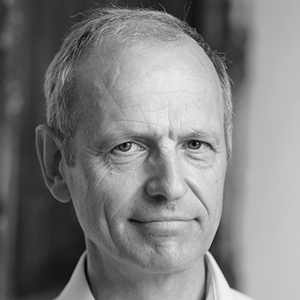
Principles for a Balanced Pension Reform
As we enter the critical years of an ageing population, it is actually five minutes to midnight to reform the pension system if we want to ensure adequate pensions for current and future generations. The affordability of the pension system as it stands today is under pressure, and it seems as if the population, young and old, is not sufficiently aware of the consequences the status quo might have on their standard of living. There is also strong social resistance to pension reforms that are perceived as unbalanced.
In Belgium, as in other European countries, the debate on financing intergenerational solidarity has been going on for several decades, and a reasonably balanced proposal for pension reform was already drawn up by the Pension Reform Commission, which, however, remained dead letter.
This LIAS working group is exploring what the starting points for a balanced and socially just pension reform could be. In doing so, the first step is to clarify what a pension system should be for, and how it can be realised in a socially just and inclusive way, with solidarity both between and within generations. How should uncertainties regarding life expectancy and longevity be dealt with, and in what way are actuarial corrections to be applied when determining the pension amount? How can a pension system provide insight into the relationship between the amount of pension and the collective length of the average career and thus contribute to support for the policy pursued? What role does social dialogue play in the pension debate, and why does a reform find so little popular support?
In particular, the working group will focus on discussions at the following starting points:
- Working longer is necessary if a decline in living standards is to be avoided (among retirees or among the active population). Flexible retirement options, starting from a fixed career length, are preferable to a statutory retirement age.
- The pension system pursues a balance between insurance (or 'contribution-based benefits') and poverty reduction.
- Future pension expenditure must be budget sustainable. This sustainability should be achieved in an intergenerationally equitable way. Here, the aim should be to achieve a credible social contract that restores confidence among the young (necessary for a repartition system).
- The current pension system was set up at a time when forms of cohabitation were very different. The current treatment of the family dimension in that system is outdated.
- Risk sharing requires a balance between repartition and capitalisation.
- We need to think about 'labour form neutral' pensions, a concept from that has already taken hold in the Netherlands. Here, we assume that differences can only be justified on the basis of objective differences in the social and economic circumstances of different pension beneficiaries, and the different systems (employee, self-employed and civil servants' system) need to be reconsidered.
Such principles of a pension reform should be thoroughly considered. The Leuven working group intends to submit a discussion text on these principles to international colleagues in autumn 2023.
We are planning several public events:
On 23 November we are organising On pensions and intergenerational justice'. Click here for more information and to register.
On 29 November we are organising the lecture and debate 'Maintaining Confidence: The Pension (Not-) Reforms Of Our Neighbouring Countries'. Click here for more information and to register.
FELLOWS
Participants in this project:
METAFORUM WORKING GROUP

A healthy public debate about important societal challenges requires a common and scientifically sound basis.
Bart Pattyn
Co-Chair LIAS and member Board LIAS Foundation
Contact
- Pater Damiaanplein 9
- BE-3000 LEUVEN
- Contact
- +32 16 32 38 29













